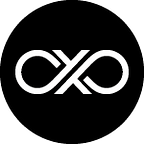New terms are constantly being created in the IT industry. Words that are unfamiliar to the concept at first are used repeatedly and become familiar eventually. In particular, there are cases where a term deliberately created by someone for commercial purposes becomes a common noun, and there are cases where it disappears quietly because it has no substance. Trends have changed according to popular terms, from ‘4th Industrial Revolution’ to ‘blockchain’ and from ‘blockchain’ to ‘NFT’. The hot potato in the IT industry right now is ‘Web 3.0’, which means the next-generation Internet environment.
Web 1.0 is represented by portals (Yahoo, Google, etc.), which can be summarized as the ‘read-only Internet era’ in which users search and acquire information through the Internet. Web 2.0 became the background for the emergence of current IT giants and platform companies (YouTube, Facebook, Twitter, etc.). In summary, reading and writing became possible at the same time.
Web 3.0 is still in the process of being defined. Some say it means a decentralized network using a blockchain network, and some use the ‘Semantic Web’ technology to understand the contents of a web page and provide personalized information. It is said to be an intelligent web technology. The first start of Web 3.0 was the Semantic Web, but the concept of decentralization and private ownership was added as it met blockchain technology. In the end, the semantic web that can provide decentralized and personalized information can be seen as the definition of ‘Web 3.0’.
It is also true that the term Web 3.0 has been debated recently in Silicon Valley among IT leaders. In other words, more and more people are questioning the usefulness and reality of the term Web 3.0. Elon Musk said that Web 3.0 is more like a marketing buzzword. and “Has anyone seen Web 3? I can’t find it,” and Jack Dorsey, founder of Twitter, criticized that famous venture capitalists are leading the Web 3.0 discourse and it will eventually become a centralized Internet with a different name.
‘Decentralization’ refers to a web ecosystem in which the individual, the user, is the owner. Simply put, it is a movement against centralization. We are exposed every hour to customized advertisements that seem to inspect every move of us. The giant platform companies place advertisements in the right place, dominating all domains (computers, smartphones, TV screens) of users according to their data analysis algorithms. Therefore, it will not be easy for users to regain ownership of data, which is the goal pursued by Web 3.0.
There is no way a platform company would do the stupid thing to return ownership of data to users. No matter how much they wrap it up with the word ‘personalized information provision’, algorithms and AI technologies that make it intelligent are at the bottom, and that platform companies with data and algorithms are the owners.
The technological foundation of Web 3.0 is blockchain and decentralization. The technological aspect of decentralization is developing rapidly. Thanks to blockchain technology that utilizes the computing power of network participants distributed around the world, a huge amount of data can be distributed and stored in the network, and data conversion, management, and transaction are made possible automatically thanks to smart contract technology. By utilizing blockchain and encryption technology and using non-fungible tokens (NFTs), ownership of data can also be returned to users. In other words, the basic framework for creating a personalized Internet environment in which storage, use, and ownership are user-centered has already been completed.
“Ownership and freedom back to individuals!” What a wonderful phrase. Web 3.0 will lead us to a rosy future. However, as a company that intends to do Web 3.0 and customers who will use Web 3.0, one thing to keep in mind is that “Great power comes great responsibility” which is a very universal proposition not only in the movie.
What Web 3.0 hopes for is not to return all freedom to individuals, and the individual will not be solely responsible. Unfair contracts arising from differences in individual abilities and differences between large corporations and individuals will still remain. There is no government or supervisory authority that will stand by. Web 3.0 will inevitably bring oversight, regulation and interference.
Neither companies nor users question the necessity and technological potential of Web 3.0. However, the fact that companies and users are drawing different futures for Web 3.0 can be a big obstacle in the future. Furthermore, it is not unusual for the government and supervisory agencies to intervene at any time.
The current financial system, social system, and contract system are not obtained for free, but are the result of evolution through numerous failures over a long period of time since the Greco-Roman times. I hope the term Web 3.0 and the innovation it represents succeed. But it is required to watch carefully so that there are no major failures or many victims in the process.
